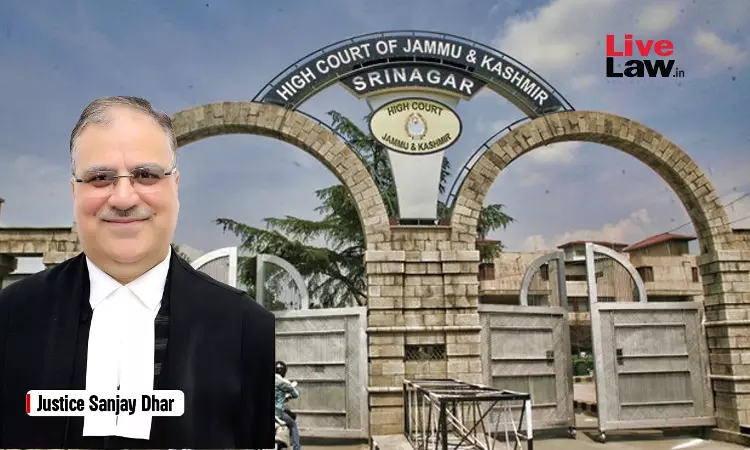- Home
- /
- High Courts
- /
- High Court of J & K and Ladakh
- /
- BNSS | Interlocutory Notice Does...
BNSS | Interlocutory Notice Does Not Decide Rights Of Parties, S.438 Bars Revisional Jurisdiction Against Such Orders: J&K High Court
LIVELAW NEWS NETWORK
31 May 2025 10:20 AM IST
Interpreting the provisions of the Bharatiya Nagarik Suraksha Sanhita (BNSS), the High Court of Jammu & Kashmir and Ladakh has held that an order merely issuing notice in a proceeding is interlocutory in nature and, therefore, not amenable to revisional jurisdiction.Justice Sanjay Dhar, while dismissing a petition filed under Section 528 of BNSS, reaffirmed that Section 438(2) of the...
Interpreting the provisions of the Bharatiya Nagarik Suraksha Sanhita (BNSS), the High Court of Jammu & Kashmir and Ladakh has held that an order merely issuing notice in a proceeding is interlocutory in nature and, therefore, not amenable to revisional jurisdiction.
Justice Sanjay Dhar, while dismissing a petition filed under Section 528 of BNSS, reaffirmed that Section 438(2) of the BNSS creates a statutory bar against exercising revisional powers in relation to such interlocutory orders.
The Court was hearing a petition filed by Aamina and others challenging two orders passed by the Chief Judicial Magistrate, Srinagar, and the 3rd Additional Sessions Judge, Srinagar. The Magistrate had issued notice to the respondents in an application seeking restraint against the sale or alienation of property, while the revisional court had dismissed the petitioners' challenge to this order on the ground of maintainability.
In his order, Justice Dhar observed that the issuance of notice by a trial magistrate does not adjudicate upon or conclusively determine the rights of the parties involved. Instead, such procedural steps are intended to facilitate the ongoing proceedings and manage case flow. The Court emphasized,
“An order issuing notice on an application does not decide the rights of the parties, therefore, such an order is interlocutory in nature. Such orders are passed by a Court to manage the proceedings without finally determining the rights of the parties. An interlocutory order is used to address procedural matters and it does not decide the rights of the parties conclusively.”
Expounding further, the Court highlighted the statutory bar imposed by BNSS against interference with such interlocutory orders and remarked,
“Sub-section (2) of Section 438 of BNSS creates a statutory bar for exercising revisional powers in relation to any interlocutory order. Thus, the revisional court has rightly refused to entertain the revision petition filed by the petitioners.”
The case originated from a petition filed under Section 12 of the Protection of Women from Domestic Violence Act by the petitioners before the Chief Judicial Magistrate, Srinagar. The Magistrate had passed protective orders restraining the respondents from evicting the petitioners from the shared household, committing acts of domestic violence, and directed him to pay maintenance.
Subsequently, the petitioners approached the court seeking execution of these directions and also sought interim relief to prevent the respondents from alienating their property to third parties. In response, the Magistrate issued notice to the respondents, listing the matter for further hearing.
However, instead of awaiting the outcome of that notice, the petitioners filed a revision petition against the order before the 3rd Additional Sessions Judge, Srinagar. The revisional court dismissed the plea as not maintainable, observing that the notice order was interlocutory in nature.
Unhappy with that decision, the petitioners approached the High Court under Section 528 of BNSS.
Terming that the revisional court's dismissal of the revision petition as legally sound and did not warrant interference under Section 528 of BNSS, the court concluded,
“The order impugned passed by learned revisional court, therefore, does not call for any interference by this Court in exercise of powers under Section 528 of BNSS. The petition lacks merit and is dismissed accordingly.”
Case Title: Aamina & Ors Vs Aamir Ahmad Mir & Ors
Citation: 2025 LiveLaw (JKL) 215



